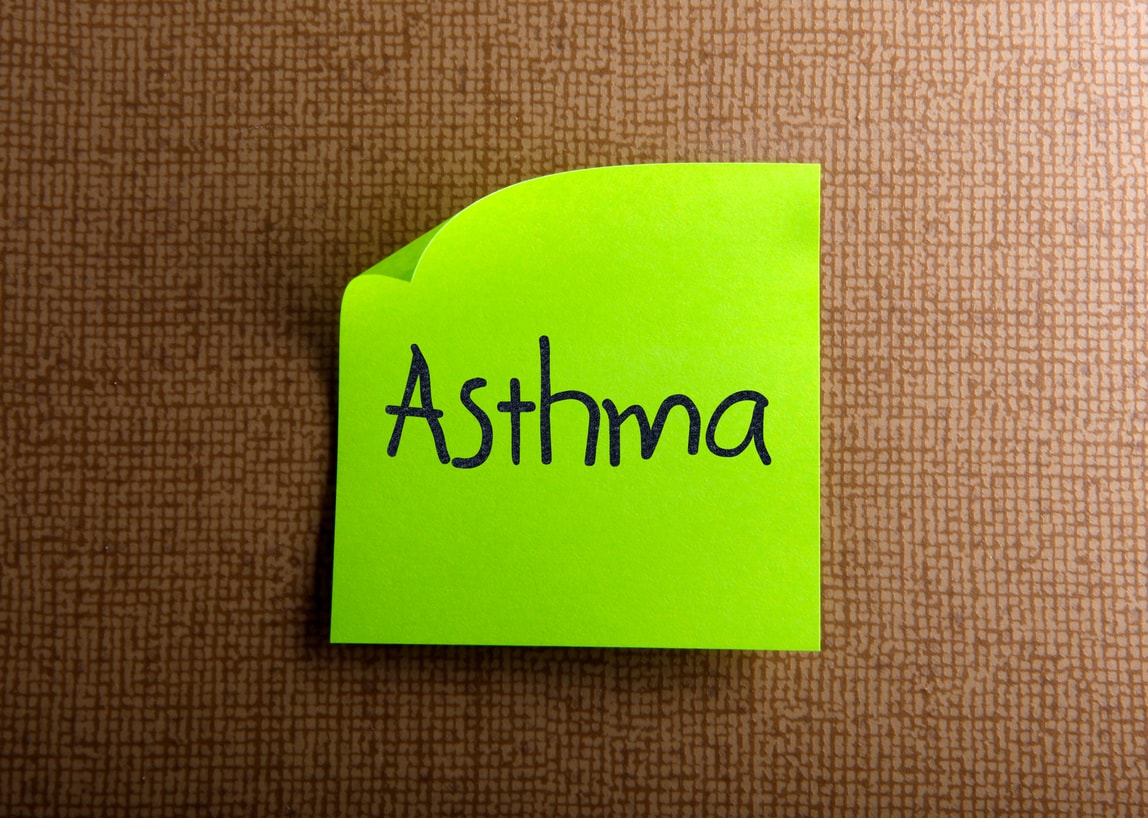Asthma Symptoms & Causes

Asthma is a chronic respiratory condition of the airways that causes episodes of breathlessness, chest tightness and wheezing as a result of the airways narrowing. According to the Australian Government’s National Health Survey 2017-2018, 1 in 9 had asthma which is 2.7 million Australians.
Asthma affects people of all ages, including babies and children and can be managed with medication and lifestyle choices. It is also possible to develop asthma symptoms later in life as an adult.
Common symptoms of asthma include:
- A feeling of being short of breath and not being able to get enough air. This has been described as trying to breathe through a thin straw.
- A high-pitched wheezing sound from the chest while you breathe.
- A continuing cough.
- A feeling of tightness in your chest.
Some people may experience ‘silent’ symptoms of asthma where the typical signs of the airways tightening don’t result in the recognisable asthma sounds of coughing and wheezing. It is important to know that asthma symptoms vary from person to person and can occur due to different things. Common asthma triggers include cigarette smoke, exercise, colds and flu and allergens including dust, pollen and grasses.
Asthma Australia notes that while asthma symptoms can be controlled, they can become very serious. “A person’s asthma symptoms can vary over time. Sometimes people with asthma will have no symptoms, especially when their asthma is well-controlled. You may have all of these symptoms, or only a few, and they may come and go. Symptoms often occur at night, early in the morning, or during or just after activity. If your asthma is well controlled, you should only have occasional asthma symptoms.”
If you or a family member has asthma or asthma type symptoms, it’s very important to consult with a General Practitioner for an ongoing Asthma Action Plan. Access Health and Community highly trained and experienced doctors can help you effectively manage your asthma. During the consultation, your GP will focus on your asthma triggers and patterns, current management of asthma and your personal health history. We offer online doctor bookings at Richmond and Hawthorn clinics.
An Asthma Action Plan can identify if your asthma is getting worse and what you can do if this occurs. The National Asthma Council of Australia notes an Asthma Action Plan can result in:
- Better control of your asthma
- Fewer asthma attacks
- Fewer days off school or work
- Reduced reliever medication use
- Fewer hospital visits.
What causes asthma?
The triggers that cause asthma vary among different people. Knowing your asthma triggers can help you avoid (if possible) these triggers and help you reduce the likelihood of asthma symptoms. Common asthma triggers include:
- Respiratory infections, cold and flu: If you have asthma and develop a cold, you may be more prone to an asthma attack.
- Cigarette smoke: Passive smoking can result in an asthma attack because your lungs are more sensitive.
- Allergies: The National Asthma Council of Australia estimates that two out of five Australians have allergies, with most also having asthma. An allergic reaction occurs when “a person’s immune system reacts to substances that are harmless to most people: Common allergens include pet hair, house dust, mites, pollen, mould and grasses. Occupational allergies can include chemicals, industrial dust and pollution.
- Exercise: While exercise can be a trigger for asthma, you don’t have to stop exercising. An asthma attack can be prevented if you warm up slowly and take preventive asthma medication prior to exercising.
When you consult your GP, they will discuss other possible triggers you may have for asthma. These could include sudden changes in temperatures, chemicals, bushfire smoke, some medications and stress or anxiety.
Thunderstorms may also trigger asthma attacks that can be fatal, this was experienced in Victoria in November 2016. While thunderstorm asthma attacks don’t always occur, they are more prevalent in the south-east states of Australia between October and January. Thunderstorm asthma occurs when pollen grains from grasses get swept up by the wind and burst open, releasing tiny particles just before the storm. These particles can enter your lungs and can very quickly result in severe and even life-threatening asthma attacks. Since 2016, the Victorian Health Department has developed a thunderstorm asthma warning system.
How can asthma be treated?
The Asthma Action Plan that you and your GP develop will include essential medicines as well as lifestyle tips and modification to help you manage your asthma. The National Asthma Council of Australia explain the main aims of asthma care and treatment will:
- Keep your lungs as healthy as possible
- Stop asthma from interfering with your work, school and leisure activities
- Keep your asthma symptoms under control
- Help prevent flare-ups and asthma attacks
The most common types of asthma medications are preventers and relievers and your GP will look at the best option depending on your asthma symptoms. Asthma Australia explains that preventers help to reduce inflammation in the airways, this is done by decreasing the sensitivity, swelling, redness as well as any mucous.
Whereas, ‘relievers are fast-acting medications that reduce the symptoms of asthma. They relax the muscles around the airways and open them up, allowing more airflow.’ If you have been prescribed a reliever, you will need to take it every day to reduce asthma symptoms and flare-ups. It’s important to note that you will need to take relievers for a few weeks to build up their full effect
If you or a family member have asthma or you suspect asthma is occurring, it is important to book an appointment with one of our highly trained and experienced GP’s (Asthma doctors). Access Health and Community have decades of experience in developing effective Asthma Action Plan while ensuring asthma doesn’t negatively impact their life. Book an appointment online or call our friendly and helpful team 9810 3000 (Option1).

Make a booking
It's quick and easy to book online or you can call our friendly intake team on
03 9810 3000. We are here to help.